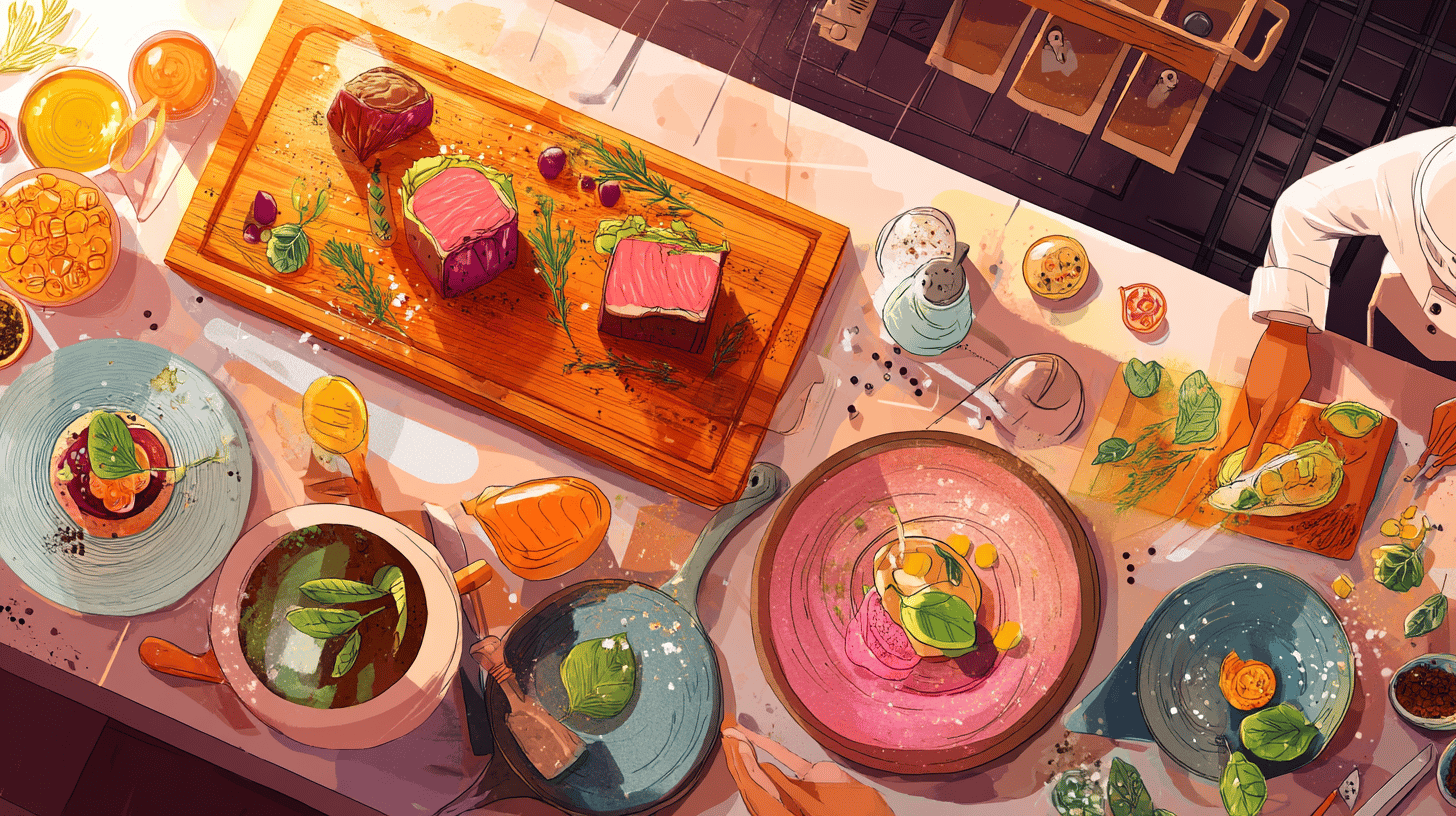Cooking is an art that is constantly evolving and reinventing itself, and with it comes new trends and techniques that can help both beginners and more experienced cooks to improve their skills in the kitchen. In this post, we will explore 10 innovative practices that can revolutionize your culinary experience and transform your meals into true gastronomic masterpieces. Whether you are a cooking enthusiast or someone looking to develop your culinary talent, these tips are sure to add a lot to your repertoire.
1. Keep a Food Journal
One practice that many professional chefs adopt is keeping a cooking journal. Record your experiences, recipes you’ve tried, what worked well and what didn’t. This practice not only helps you track your progress, but also allows you to record intuitions and recipe tweaks. Soon, you’ll have a valuable resource that you can refer to to inspire your next creation. Documenting your experiences can be just as important as the act of cooking itself.
2. Experiment with Fresh Herbs and Spices
In cooking, spices have the power to transform simple dishes into mouth-watering delicacies. Instead of limiting yourself to store-bought spices, try using fresh herbs. They offer more vibrant and complex flavors and don’t require much prior knowledge. Consider keeping a small herb garden in your home or seek out local markets that sell fresh herbs. Cooking with fresh ingredients adds a new dimension to your dish and is a very tasty practice.
3. Learn Low Temperature Cooking Techniques
Low-temperature cooking (sous vide) is a technique that allows you to cook food in a controlled environment. This ensures perfect texture and maintains the moisture of the ingredients. While it does require some specialized equipment, such as a sous vide machine, the results are undeniably rewarding. Dishes have an improved presentation and intensified flavors, making your meals more sophisticated without much additional effort.
4. Explore International Cuisine
Expanding your palate and culinary skills by exploring international dishes is a fun and educational way to grow in the kitchen. Choose a country or region each month and dedicate yourself to cooking dishes that are typical of that place. This not only diversifies your cuisine, but also provides an opportunity to learn about new cultures and traditions. When you create a dish that is typical of another nation, you engage all of your senses and will undoubtedly enrich your experience.
5. Incorporate the Fermentation Technique
Fermentation is an ancient practice that has been gaining popularity in recent decades. Products like sourdough breads, sauerkraut, and kimchi not only offer unique flavors, but they’re also beneficial for digestive health. Learning how to ferment may seem intimidating at first, but it’s a rewarding and enjoyable practice. There are plenty of tutorials online that can guide you through the process.
6. Take Time to Present Dishes
Presentation is an essential part of the dining experience. Take a moment to plan your food presentation. Visually appealing food can make all the difference in surprising your guests. Use contrasting colors, shapes, and textures to bring your dishes to life. Photos of beautifully presented dishes encourage experimentation even more. Don’t be afraid to get creative with presentation—it can be just as much fun as cooking.
7. Invest in Quality Equipment
While it may be tempting to buy cheap kitchen tools, investing in quality tools can significantly improve your cooking experience. Items like quality chef’s knives, nonstick pans, and durable cutting boards can make a difference not only in the speed and efficiency of your cooking, but also in the quality of your finished product. When you use the right tools, you’ll feel more confident and inspired in the kitchen.
8. Take Online Cooking Courses
With the proliferation of online platforms, learning to cook has never been so accessible. There are a variety of courses available, ranging from the basics to advanced classes on specific techniques or cuisine from certain cultures. Learning under the guidance of renowned chefs will provide you with valuable knowledge and can inspire new skills and recipes in your daily life. In addition, you will have the opportunity to interact with other students and exchange experiences.
9. Seek Feedback and Continuous Improvement
When creating new dishes or trying out different recipes, be open to feedback. Don’t hesitate to ask your family and friends for their honest opinions. Their feedback can help you discover areas for improvement or even suggestions for ingredients. Continuous learning is one of the keys to improving in the kitchen – and the feedback from those who try your creations can be inspiring and motivating.
10. Celebrate Your Culinary Achievements
Last but not least, celebrate your kitchen achievements, even the smallest ones. If you made your first pie or cooked a challenging dish, acknowledge it! Share your creations on social media or host a dinner party for friends. These little celebrations will not only boost your confidence, but they will also encourage your future efforts. Cooking should be fun, and this recognition will keep your motivation high.
Conclusion
Cooking is not just a necessity, but a form of creative expression. By introducing these 10 innovative practices into your cooking routine, you can not only develop valuable skills, but also transform the way you view and experience food. Cooking should be a journey, not a destination. So have fun and enjoy every moment of this delicious experience. Don’t forget to share your culinary adventures with us and let us know how you applied these tips in your kitchen! Let’s cook together!


